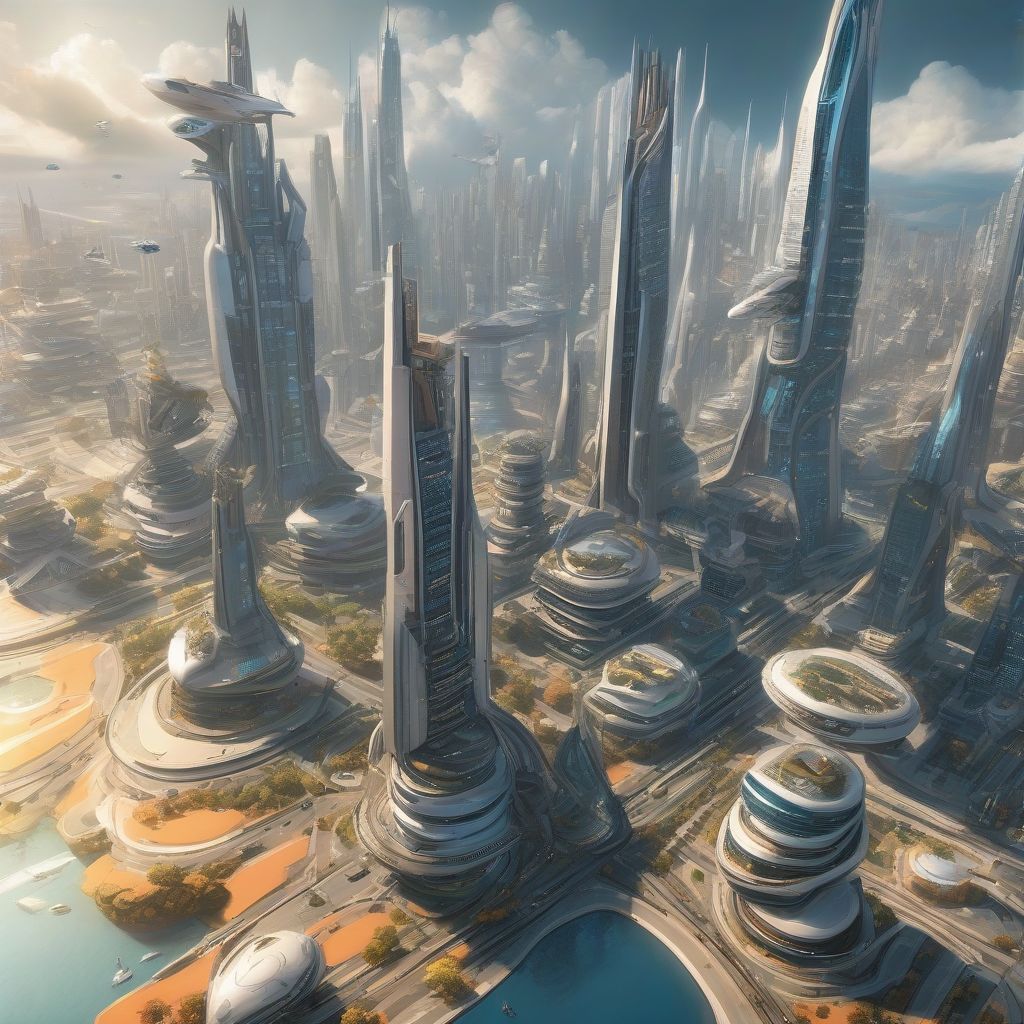Imagine a world where cars fly, robots are our companions, and we can travel through time. Now, hold onto that thought, because it’s precisely these fantastical ideas that make science fiction so captivating. It’s not just about spaceships and lasers; it’s about exploring the profound impact of technology and innovation on our lives, fears, and dreams for the future.
More Than Gadgets: Technology as a Mirror to Humanity
Science fiction often uses technology as a narrative tool, a way to examine the human condition under extraordinary circumstances. For example, in Aldous Huxley’s “Brave New World,” the author presents a future consumed by technological advancements designed to control and pacify society. It’s a chilling reflection on the potential pitfalls of unchecked scientific progress and the importance of individual freedom.
Artificial Intelligence: A Recurring Theme with Endless Possibilities
From the benevolent AI in Isaac Asimov’s “I, Robot” to the menacing HAL 9000 in “2001: A Space Odyssey,” artificial intelligence (AI) is a pervasive theme in science fiction. These stories grapple with questions about consciousness, ethics, and the very definition of humanity. Will AI elevate us or enslave us? The debate continues not just within the pages of science fiction novels but also in our own world as AI technology rapidly advances.
You can learn more about AI’s impact on our world in this article: The Role of Artificial Intelligence in Science Fiction Discussions
Innovation as a Catalyst for Change (and Chaos)
Science fiction doesn’t shy away from portraying the potential consequences of innovation. Take, for instance, the cyberpunk genre, which often explores the social and economic disparities exacerbated by rapid technological advancements. Films like “Blade Runner” and “The Matrix” paint a bleak picture of urban decay and social unrest, cautionary tales about the potential dark side of technological progress.
 Future City Technology
Future City Technology
The Power of Speculation: Shaping the Future Through Fiction
Perhaps one of the most important roles of technology and innovation in science fiction is its ability to inspire real-world progress. Jules Verne’s submarine adventures in “Twenty Thousand Leagues Under the Sea” predated the invention of the modern submarine, yet his imaginative work sparked the imaginations of inventors and engineers. Similarly, the communicators in “Star Trek” bear a striking resemblance to today’s smartphones, a testament to the power of science fiction to influence the future it envisions.
Conclusion: A Dialogue Between Fiction and Reality
Ultimately, science fiction’s enduring fascination lies in its ability to spark important conversations about the role of technology and innovation in our lives. It challenges us to think critically about the ethical implications of scientific advancements and to consider the potential consequences of our actions. So, the next time you delve into a science fiction novel or film, remember that you’re not just escaping into a world of fantasy, but engaging in a dialogue about the very real future we are creating.
What are your thoughts on the impact of technology as portrayed in science fiction? Share your opinions and favorite examples in the comments below!
[amazon bestseller=”Science Fiction Books”]
